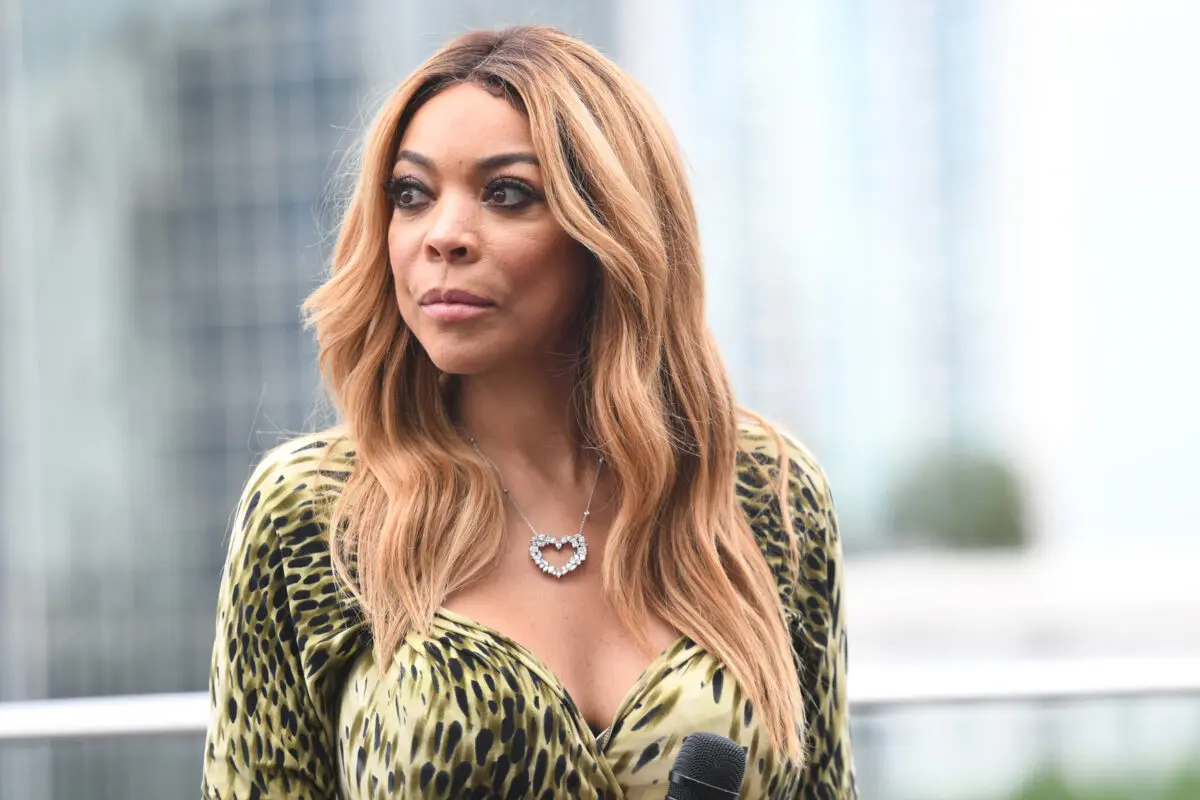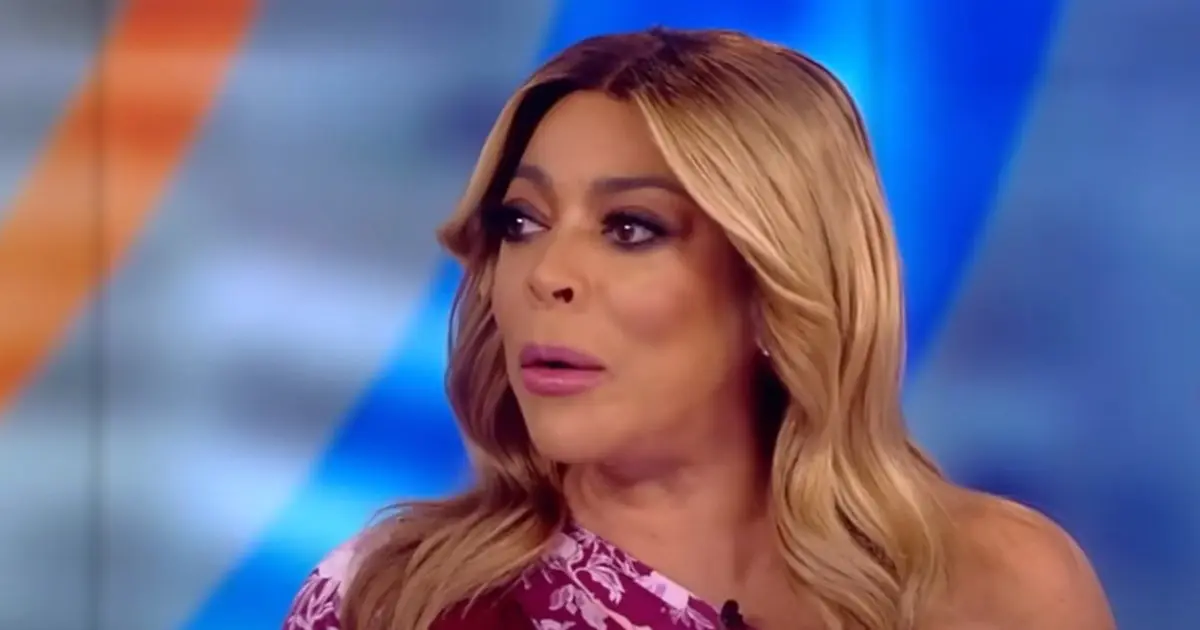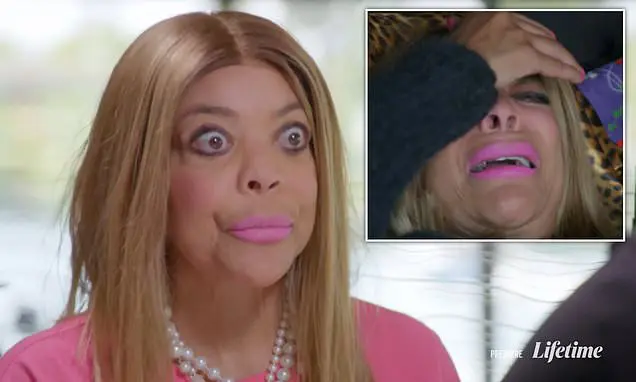In a surprising turn of events, Wendy Williams, the iconic talk show host, has publicly challenged her dementia diagnosis, labeling it as “disgusting” and “fake” during a recent call to The Breakfast Club. This bold statement has not only raised eyebrows but has also prompted her legal guardian, Sabrina Morrissey, to request a new medical evaluation to ensure the authenticity of Wendy’s health status. The clash between public perception and personal reality in celebrity health discussions continues to captivate audiences.
The Controversial Diagnosis
Wendy Williams openly expressed her disdain towards her diagnosis of frontotemporal dementia, categorizing it as an exaggerated form of speculation. During her radio interview, she firmly stated, “That’s a very rare thing for anybody to have. I don’t have frontotemporal dementia,” asserting her mental capability and independence.
This statement is significant as it injects a personal perspective into a medically serious matter, raising questions about the extent to which public figures can challenge and resist labels placed upon them by medical professionals. Wendy’s guardian, however, appears unconvinced.

The Legal Response
In light of Williams’ strong rejection of her illness, her legal guardian, Morrissey, acted swiftly. Court documents reveal that she is seeking a new medical evaluation involving comprehensive neurological and psychological testing by specialists. This is aimed at providing a clearer picture of Wendy’s mental health, especially in response to her public claims of having “no cognitive impairment” and feeling like a “prisoner” in her current living situation.
The tension between the media’s portrayal of Wendy’s health and her insistence on her competence underscores the complexity surrounding mental health diagnoses in the public eye. It also invites discussion around the ethical implications of guardianship and personal autonomy in such cases.
Wendy’s Journey Through Guardianship
Wendy’s battle with her guardian spotlighted not just her health struggles but also her desire for independence. In January, reports indicated that she dismissed her court-appointed attorney as part of her efforts to regain control over her life and financial decisions. This act portrays a woman determined to reclaim her narrative amidst unsolicited diagnoses and public scrutiny.
Furthermore, the guardianship arrangement highlights the fragility of personal agency. Family involvement and the choices they make can significantly influence a public figure’s life, often leading to a perceived power struggle between the individual and their caretakers.

The Complexity of Mental Illness Narratives
The narratives surrounding mental illness have been altered by the rise of social media and public figures like Wendy Williams owning their story. By rejecting a diagnosis that others have defined for her, she is taking a stand not just for her health but for how society views mental illnesses. Her refusal to accept the label placed on her can resonate with many battling similar situations where they feel their diagnoses do not define their capabilities.
Moreover, this situation illustrates the dual reality faced by celebrities: public scrutiny mixed with the profound human struggle of dealing with health issues away from the limelight. Celebrities often bear the weight of expectations, not just as entertainers, but as individuals with personal struggles often dismissed by the public.
Public Reaction and Media Coverage
Public response to Wendy’s declarations has varied widely. Some fans express unwavering support, empathizing with her plight, while others question her authenticity and mental state. The coverage of such personal matters can sometimes tip the balance into sensationalism, diverting the focus from real struggles individuals face daily.
Media outlets report her story not just for its entertainment value but also for the implications related to mental health awareness, the ethics of guardianship, and the societal responsibility of highlighting sensitive issues rather than exploiting them.

Breaking Down Stigma
Wendy’s situation dares to challenge the stigma surrounding mental health. By vocalizing her opinions and asserting her autonomy, she raises critical questions about the reliability of diagnoses and the implications of authority figures defining an individual’s mental capacity. The possibility of her narrative steering a change in perception toward mental illnesses presents an opportunity for greater compassion and understanding in society.
Acknowledging that mental illness does not have a “one size fits all” description is crucial. Individuals have unique experiences that shape the way they perceive their health challenges; hence, their narratives deserve to be heard without the heavy hand of judgment.
The Future of Wendy Williams’ Advocacy
As the legal battle unfolds between Wendy and her guardian, the larger conversation about mental health, celebrity narratives, and the autonomy of individuals battling illness remains at the forefront. Wendy’s potential role as an advocate could reshape public perceptions and encourage better understanding regarding mental health struggles faced by celebrities.
Wendy’s willingness to engage in discourse surrounding her health could pave the way for other public figures to share their journeys, ultimately contributing to a societal shift in how mental health is perceived and discussed. This advocacy might inspire others facing similar battles to take control of their narrative, demonstrating that speaking out matters.

Wendy’s Life Beyond the Headlines
There’s more to Wendy Williams than the headlines about her illnesses and legal struggles. Her history as a beloved talk show host and her ability to connect with fans rests on an authentic representation of herself. Her journey through this difficult chapter can remind all of us of the resilience individuals display in the face of adversity.
Moreover, the dialogues stemming from her experiences may ignite recognition and respect for personal journeys, focusing on recovery and support rather than judgment. Encouraging compassionate discussions surrounding mental health becomes essential as society continues the conversation on how to support those in difficult positions.
The Implications of Wendy’s Statements
Wendy’s declarations and the ongoing legal battle could set significant precedents regarding mental health discourse in the media. This high-profile case emphasizes the importance of allowing individuals to define their experiences rather than succumbing to external pressures and narratives shaped by public opinion.
Future discussions around mental health could benefit from this case, urging media outlets, family members, and guardians to consider the implications of their portrayals and decisions relating to the vulnerable. Taking time to listen, understand, and learn from experiences can contribute to a more empathetic integration of mental health issues in public discussions.

Creating a New Narrative
As conversations around Wendy Williams continue to unfold, they can inspire shifts in how society approaches mental health issues. This may usher in an era where narratives around these topics foster understanding and compassion rather than condemnation and ridicule.
Wendy Williams’ story highlights the need to respect individuals’ choices in framing their health experiences. Such reverse stigma could empower many others to stand firm against labels and expectations placed upon them, potentially leading to a broader cultural shift that favors empathy over judgment.
Hi there! I’m Jade, a 38-year-old gossip journalist with a passion for uncovering the juiciest stories in the world of celebrity news. With years of experience in the industry, I love sharing the latest trends and insider scoops.



